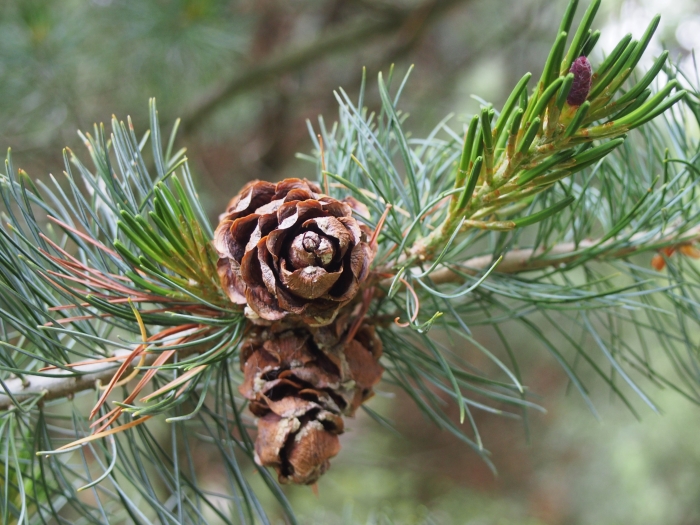Japanese White Pine
(Pinus parviflora)
Japanese White Pine (Pinus parviflora)
/
/

Agnieszka Kwiecień, Nova
CC BY-SA 4.0
Image By:
Agnieszka Kwiecień, Nova
Recorded By:
Copyright:
CC BY-SA 4.0
Copyright Notice:
Photo by: Agnieszka Kwiecień, Nova | License Type: CC BY-SA 4.0 | License URL: https://creativecommons.org/licenses/by-sa/4.0 | Uploader: Nova | Publisher: Wikimedia Commons | Title: Pinus_parviflora_Sosna_drobnokwiatowa_2019-05-29_05.jpg | Notes: User created page with UploadWizard |















































Estimated Native Range
Summary
Pinus parviflora, commonly known as Japanese White Pine, is an evergreen coniferous tree native to the mountainous regions of Japan and Korea, where it grows in mixed forests and on rocky slopes at elevations of 1500-2800 meters. It typically reaches a height of 15–25 meters with a similar spread, forming a wide, dense, conical crown. The blue-green needles are arranged in bundles of five, each needle measuring 5–6 cm in length, which is a distinctive feature of the white pine group. The attractive cones are small, 4–7 cm long, with broad, rounded scales, and the seeds are 8–11 mm long with a vestigial wing. The bark is smooth and gray when young, becoming scaly and deeply fissured with age.
Japanese White Pine is valued for its aesthetic appeal, particularly the fine texture of its foliage and the overall graceful form of the tree. It is a popular choice for bonsai due to its slow growth rate and ability to respond well to pruning and training. In landscape use, it is often planted as a specimen tree in parks and gardens, and can also be used in group plantings or as a screen. This species prefers full sun but can tolerate light shade, requires medium amounts of water, and is adaptable to a range of soil types, provided they have good drainage. While generally low-maintenance, it can be susceptible to pine wilt disease and certain pests such as pine sawfly and bark beetles.CC BY-SA 4.0
Japanese White Pine is valued for its aesthetic appeal, particularly the fine texture of its foliage and the overall graceful form of the tree. It is a popular choice for bonsai due to its slow growth rate and ability to respond well to pruning and training. In landscape use, it is often planted as a specimen tree in parks and gardens, and can also be used in group plantings or as a screen. This species prefers full sun but can tolerate light shade, requires medium amounts of water, and is adaptable to a range of soil types, provided they have good drainage. While generally low-maintenance, it can be susceptible to pine wilt disease and certain pests such as pine sawfly and bark beetles.CC BY-SA 4.0
Plant Description
- Plant Type: Tree
- Height: 30-50 feet
- Width: 30-50 feet
- Growth Rate: Slow
- Flower Color: N/A
- Flowering Season: Non-Flowering
- Leaf Retention: Evergreen
Growth Requirements
- Sun: Full Sun
- Water: Medium
- Drainage: Slow, Medium, Fast
Common Uses
Bird Garden, Border Plant, Deer Resistant, Drought Tolerant, Fragrant, Rabbit Resistant, Rock Garden, Salt Tolerant, Street Planting
Natural Habitat
Mountainous regions of Japan and Korea, mixed forests and rocky slopes at elevations of 1500-2800 meters
Other Names
Common Names: Five-Needle Pine, Ulleungdo White Pine, Goyo-Kiefer, Japanische Weißkiefer, Mädchen-Kiefer, Mädchenkiefer, Japán Fehérfenyo, Pino Parvifloro, Pino Bianco Giapponese, Japanse Witte Den
Scientific Names: , Pinus parviflora, Pinus parviflora f. glauca,
GBIF Accepted Name: Pinus parviflora Siebold & Zucc.